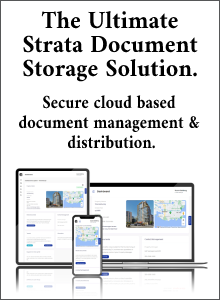
The Roles and Responsibilities of Strata Council
The Roles and Responsibilities of Strata Council
There are 2 basic principles to understand how the Act creates obligation and delegates authority to the strata council.
Strata Property Act Responsibilities of Strata Corporation
Part 2. 3 Except as otherwise provided in this Act, the strata corporation is responsible for managing and maintaining the common property and common assets of the strata corporation for the benefit of the owners.
Strata Property Act Strata Corporation functions through council
Part 2.4 The powers and duties of the strata corporation must be exercised and performed by a council, unless this Act, the regulations or the bylaws provide otherwise.
To grasp the intricacies of the strata council’s roles, one must first delve into the responsibilities of the strata corporation. Essentially, the strata council acts as the representative of the corporation, holding the authority delegated by the corporation. Their responsibilities encompass the execution of maintenance and repair of shared assets and facilities, addressing emergencies, upholding bylaws, overseeing financial activities, maintaining records, handling court actions and arbitration, managing forms for real estate transactions, administering service contracts, ensuring proper insurance, convening council and general meetings, and orchestrating the holistic operations of the corporation, all in alignment with the Strata Property Act.
Upon being elected, a primary consideration for the strata council is the allocation of roles among its members. Questions often arise like: Who assumes the position of president, vice president, secretary, or treasurer? Does candidate “A” fit the role of secretary, or is their gardening expertise more aligned with landscaping duties? How involved should the strata council be in supervising service contractors, especially if the strata manager already oversees this responsibility?
Moreover, if the property receives comprehensive management and has service contracts in place, what is the exact role of the strata council? Should they immerse themselves in everyday business operations? Conversely, in the absence of management, which service contracts will the strata necessitate to fulfill its commitments? It’s worth noting that the Strata Property Act (SPA) provides clear guidelines, detailing limitations, delegation terms, and ethical standards expected of strata council members.
Strata Property Act Council member’s standard of care
Part 4.31 In exercising the powers and performing the duties of the strata corporation, each council member must:
(a) act honestly and in good faith with a view to the best interests of the strata corporation, and
(b) exercise the care, diligence and skill of a reasonably prudent person in comparable circumstances
Strata Property Act Disclosure of conflict of interest
Part 4.32 A council member who has a direct or indirect interest in a contract or transaction with the strata corporation must:
(a) disclose fully and promptly to the council the nature and extent of the interest,
(b) abstain from voting on the contract or transaction, and
(c) leave the council meeting (i) while the contract or transaction is discussed, unless asked by council to be present to provide information, and (ii) while the council votes on the contract or transaction
Strata Property Act Council exercises powers and performs duties of strata corporation
Part 4 (1). 26 Subject to this Act, the regulations and the bylaws, the council must exercise the powers and perform the duties of the strata corporation, including the enforcement of bylaws and rules.
Strata Property Act Council member’s standard of care
Part 4.31 In exercising the powers and performing the duties of the strata corporation, each council member must
(a) act honestly and in good faith with a view to the best interests of the strata corporation, and
(b) exercise the care, diligence and skill of a reasonably prudent person in comparable circumstances.
In the context of strata management, it’s imperative to understand the roles and responsibilities that underpin the operations. Before arriving at any decision, both the strata council and the manager should be well-acquainted with who oversees each specified role. There are times when the strata council might take a direct, active role, whereas in other scenarios, their focus might be on disseminating information, addressing concerns, and casting votes. The onus of determining these roles rests with the strata council itself.
Through a majority vote, the strata council delineates where duties and obligations lie. While the strata council can delegate certain responsibilities to either individual members or the manager on the corporation’s behalf, it’s important to note that the ultimate accountability and liability rest with the strata council and the corporation.
For a clearer perspective, let’s delve into some typical roles associated with the strata council. These roles often demand a synergistic approach between council members and the manager. While this overview isn’t comprehensive, it aims to facilitate the strata council and manager in understanding and appropriating responsibilities.
The strata council basic obligations and duties are:
- Calling and conducting general meetings
- Preparing the budget and financial statements
- Collecting strata fees and other money owed to the strata corporation
- Obtaining adequate strata corporation insurance
- Paying strata corporation bills
- Keeping a list of the names of owners and tenants, and similar documents
- Hiring and supervising employees of the strata corporation
- Considering exempting the application of rental restriction bylaws for individual owners based on hardship
- Enforcing the bylaws & rules & convening council meetings to conduct hearings requested under section 34 of the Act
- Making themselves accessible by providing a telephone number or some other method of contact
- Entering into strata corporation contracts and supervising the performance of duties under those contracts
- Keeping all strata corporation records required by Section 35 of the Act including, depreciation reports, environmental and engineer reports, or materials related to depreciation reports
For a clear understanding of strata management, it’s essential to grasp the distinct roles and authority within the strata council. Outside of the president/vice president’s duty to oversee meetings or notify of petitioned general meetings, no individual council member possesses unique authority to represent the corporation.
Such authority can only be granted if the strata council, through a majority vote, bestows this responsibility. However, it’s crucial to note that the strata council cannot delegate tasks related to the enforcement of bylaws, rules, or to ascertain the legitimacy of hardship applications.
To further illustrate, let’s explore some examples of how the strata council might designate and allocate duties. This division of tasks aids council members in efficiently managing their work, ensuring they can effectively report and introduce topics at upcoming strata council meetings.
President/Vice President
Secretary
Treasurer
Bylaws and Rules Council Member
Buildings Council Member
Landscaping Council Member
At the outset of each year, it’s essential for every council to allocate time during their initial meeting to define their roles and responsibilities. This ensures that they can collaboratively and effectively engage with both each other and their property manager.
Establishing a harmonious working relationship underpinned by a clear comprehension of roles can mitigate potential conflicts and misunderstandings. Such a proactive approach paves the way for a conducive environment that benefits both owners and residents.
Not Legal Advice - The material provided on the StrataPress website is for general information purposes only. It is not intended to provide legal advice or opinions of any kind and may not be used for professional or commercial purposes. No one should act, or refrain from acting, based solely upon the materials provided on this website, any hypertext links or other general information without first seeking appropriate legal or other professional advice. These materials may have no evidentiary value and should be checked against official sources before they are used for professional or commercial purposes. Your use of these materials is at your own risk.






